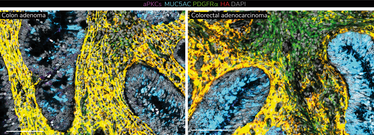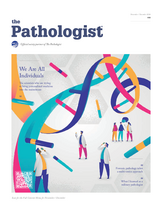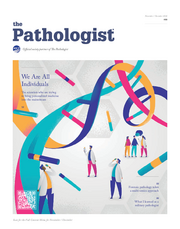
Getting Ahead of the Colorectal Curve
Researchers identify the steps of colorectal cancer formation to support early diagnosis
Jessica Allerton | | 2 min read | News

Credit: Maria Diaz-Meco
In the battle against colorectal cancer (CRC), researchers sought understanding of what causes the disease before it establishes, allowing for earlier diagnosis and improved treatment strategies (1).
CRC is the second leading cause of cancer-related deaths in the USA and, despite protocols of treatment benefiting many patients, when metastasized this heterogeneous disease is hard to control. In hopes of gaining a better understanding of the biology and pathology of the disease, a team of researchers across Spain, America, and Japan aimed to decipher the molecular and cellular mechanisms for immunotherapy treatment.
“We’ve succeeded previously with this approach in mouse tumors and identified biomarkers in human species,” explains senior author Jorge Moscat, Professor of Oncology and Vice Chair in the Department of Pathology at Weill Cornell Medicine. “This has allowed us to predict which patients will respond successfully or not depending on the composition of the tumor's extracellular matrix.”
However, the team faced a challenge in converting this approach from mouse models into human patients. To combat this, they generated two new mouse models and applied state-of-the-art single-cell analysis and bioinformatics tools to understand how CRC tumors initiate and progress.
CRC arises from one of two pre-cancerous polyps, conventional adenomas and serrated adenomas. Conventional adenomas develop from mutated stem cells at the bottom of intestinal crypts, whereas serrated adenomas come from a different type of stem-like cell at the top of the crypts. These are often referred to as the “bottom-up” and “top-down” tumor forming processes.
The Pathologist Presents:
Enjoying yourself? There's plenty more where that came from! Our weekly Newsletter brings you the most popular stories as they unfold, chosen by our fantastic Editorial team!
Researchers firstly took the bottom-up and top-down theories, but the results were conflicting, showing both tumor types at a loss of intestinal stem cells after aPKC genes were inactivated. This meant both conventional and serrated cancer are bottom-up, and showing that cells accounting for the malignancy of aggressive tumors can be identified in tissue before the carcinogenesis process.
Maria Diaz-Meco, Professor of Oncology at Weill Cornell Medicine and co-senior author explains that this result has very important implications, “Progressing understanding of these early changes could support the creation of preventative treatments and biomarkers to halt tumorigenesis before it becomes irreversible and harder to treat”.
Looking ahead, the researchers have many avenues to explore, including a pathway and drug for an immunotherapy that works against the most aggressive, treatment-resistant CRCs. These initiatives have been successful in the past, but only account for less than 15 percent of CRCs.
“We hope to run a clinical trial with our oncologist colleagues to prove that our pathway and biomarkers work. This drug could make patients responsive to immune checkpoint blockade therapy,” Diaz-Meco concludes.
- H Kinoshita et al., Dev Cell (2024). PMID: 38815584.
Deputy Editor, The Pathologist




















